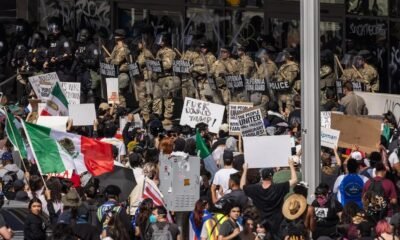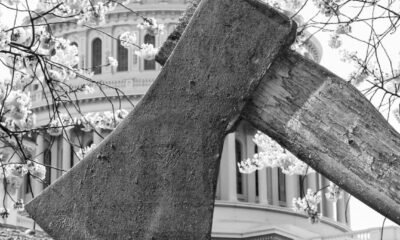DC Bureau
Supreme Court Greenlights Trump’s Move to Terminate Deportation Protections for 532,000 Immigrants

WASHINGTON — The U.S. Supreme Court has decided to allow the Trump administration to proceed with the removal of deportation protections for over 500,000 nationals from Cuba, Haiti, Nicaragua, and Venezuela. These individuals had previously been granted temporary status to work and reside in the country by the Biden administration.
This ruling permits deportations while a related lawsuit moves through the courts. A Massachusetts district court had previously blocked efforts to end the Cuba, Haiti, Nicaragua, and Venezuela (CHNV) program, which affects 532,000 people.
This marks the second Supreme Court ruling this month that limits temporary legal protections for immigrants, impacting more than 800,000 individuals without permanent legal status, who are now at greater risk of immediate deportation.
On May 19, the Court similarly allowed the Trump administration to terminate Temporary Protected Status for 350,000 Venezuelans, citing instability in their home country.
Department of Homeland Security Assistant Secretary Tricia McLaughlin expressed support for the ruling. She emphasized the need to end the CHNV parole programs as a return to common-sense policies focused on public safety.
In contrast, Todd Schulte, president of the immigration advocacy group FWD.us, criticized the decision. He stated it punishes individuals who have adhered to immigration laws and warned of severe consequences for families affected by job loss and deportation risks.
The case highlights ongoing immigration-related emergency requests by the Department of Justice, as the Trump administration pushes for mass deportations and a redefinition of birthright citizenship.
In the emergency filing, Solicitor General D. John Sauer contended that the Immigration Nationality Act restricts judicial review of discretionary actions like humanitarian parole related to the CHNV program. He noted that the program was terminated to align with the administration’s interests.
Liberal justices Sonia Sotomayor and Ketanji Brown Jackson dissented, with Jackson arguing that the ruling disregards the significant impacts on the lives of nearly half a million noncitizens during ongoing legal proceedings.
President Joe Biden established the CHNV program in 2023 to allow nationals from the affected countries to remain in the U.S. if they were sponsored and passed security checks.


















